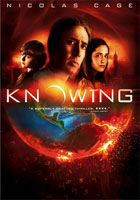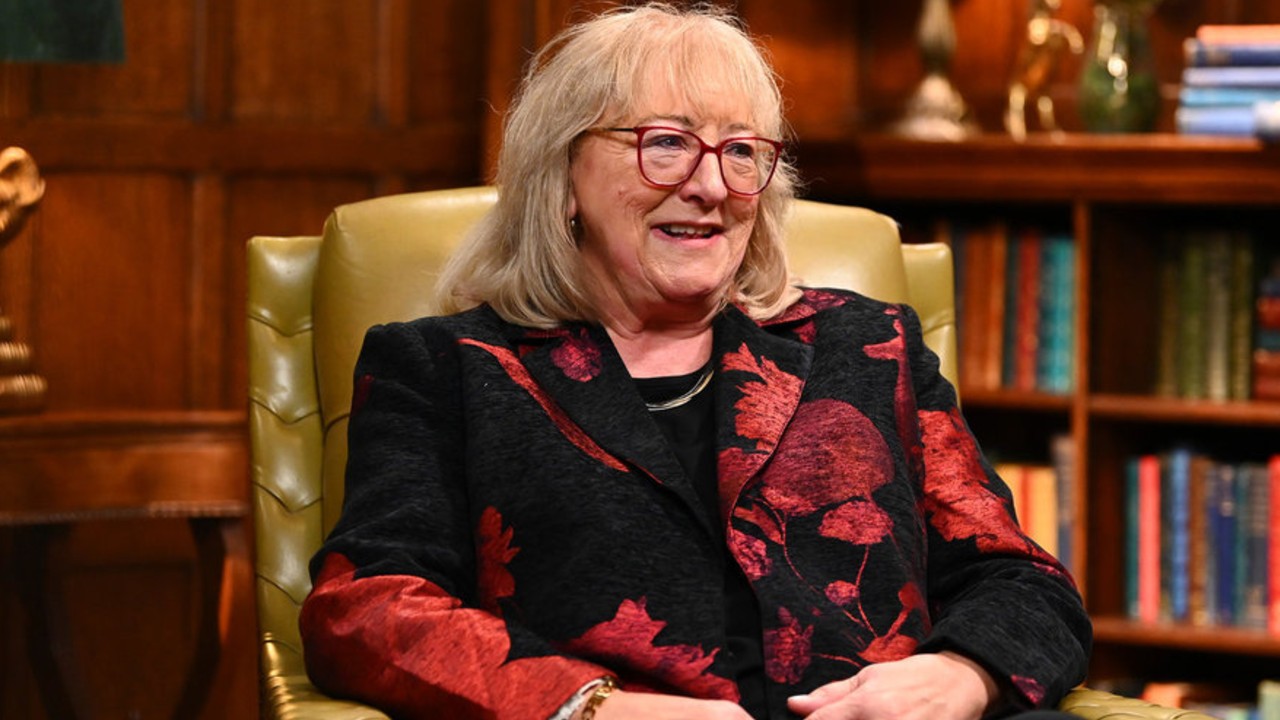Knowing starts off in 1959, when a time capsule full of envelopes with children's drawings depicting their predictions of the future is buried at an elementary school. However, one envelope contains a long series of numbers eerily and obsessively written out by girl in the class. She is so obsessed, in fact, when the teacher calls time and takes the paper away, leaving her work unfinished, they find her later in a closet scratching out the rest of the numbers in the door with bloody fingernails. When the time capsule is opened 50 years later, the series of numbers happens to fall in the hands of a present day elementary schooler, Caleb (Chandler Canterbury), son of MIT astrophysicist John Koestler (Nicolas Cage). At home, after getting a little scotch on the paper, Koestler happens to notice a pattern to the numbers: they include dates. With some research, Koestler finds that the numbers preceding the dates are actually death tolls of the disasters that fell on the date. They are accurate without fail, and bonus: some of them haven't happened yet. In fact, one is scheduled for the very next day! But of course, Koestler doesn't fully buy it... There are extra numbers confusing Koestler in the letter, and no sooner does he figure them out as locations does he realize that the next event was happening as his exact location.
A plane crashes across the highway, killing exactly as many people as the paper predicted. This scene is one of the two major disaster scenes in the movie, and they're both visually awesome. You may have caught a glimpse of the plane crash in the trailers; the entire jaw-dropping scene, amazingly shot in one take, is worth it alone to see the movie.
Now Koestler is sold, and the movie predictably goes into the-tragic-hero mode, wherein Koestler runs about trying to warn people about the impending doom and no one believes him. From here on, the movie gets heavy with the deep philosophical undertone of science vs. religion, but it never really dives all the way into making an argument for either case. It makes Koestler's on-screen struggle with his inner science vs. religion battle seem trite.
There are also a lot of plot devices that aren't really fleshed out: Caleb's hearing problems, the relationships between Caleb, John, and his dead wife, the birthday gift from John's wife that he never opened, John's research into solar flares as an astrophysicist...and really, what is the deal with the rocks and the creepy guys?
As stated before, one of the major drags of Knowing is the actor behind the main character. While Nicolas Cage is still watchable and probably always will be, he can go from pleasing to absurd in a role before you can say “my god, he has some crazy hair”. His overacting kills most of his roles, except those ones that actually call for it, and Knowing is no exception. By the end of the movie, he'll have sickened you to death with the cheesy sign language between him and his son (which feels like one long set up to get a touching moment at the end of the movie). And why, oh why, would a professor at MIT present his ID card in his wallet like it's a police badge?
After breaking onto the scene by striking cult-film gold with The Crow and Dark City, and then making everyone scratch their heads at Garage Days and I, Robot, you'd hope that director Alex Proyas could have returned to his roots and done a little better with Knowing. While the movie isn't all bad, with some really stunning scenes and a plot line that really does have incredible potential, there could have been some significant changes to turn this into a spectacular movie. The special features offered on the DVD are a little on the light side; there are only three sections in the special features menu:
First, the typical audio commentary by the director is included.
Your Daily Blend of Entertainment News
Next, Knowing All: the Making of a Futuristic Thriller is a very generic overview of the making of the movie, only scratching the surface of the making of the film. It spends most of its time going into the relationships between the cast and crew, special effects, and the difficulties of the plane crash shot, but doesn't go in depth on any one topic.
Lastly, Visions of the Apocalypse gives a real-world view of the ideals portrayed in the movie, concentrating mostly on the philosophies and idealologies presented, with a dose of the science of the end of the world thrown in for good measure. It's interesting to say the least, but will be boring to anyone who has watched any of the similar and numerous programs on the Discovery Channel or the History Channel.

